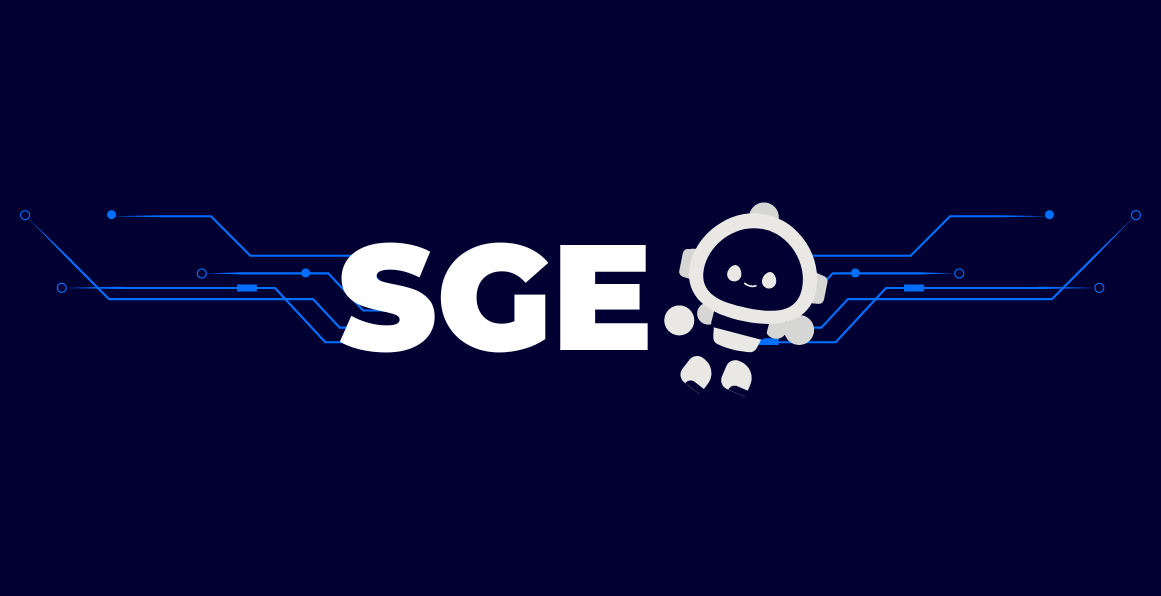Using AI for SEO: Tips and trick to ensure you get the best results
AI has rapidly become one of the most transformative tools for content creators, developers, and digital marketers. With tools like ChatGPT leading...
Got a question, or need help with something?
A member of the LoudLocal team is on hand to help you.
The Brickyard, Unit 2, Queen's Rd, Kenilworth, Warwickshire, CV8 1JQ
5 Merchant Square, Paddington, London, W2 1AY
7 min read
Tanya Hidderley
:
Dec 24, 2024 6:00:08 PM
Throughout 2024, as part of our calendar campaign, we have covered a variety of topics related to search engine optimisation (SEO) and what we felt would impact search engines like Google and Bing. As we approach 2025, the areas we have covered are rapidly becoming the norm. The impact AI (artificial intelligence) has had on SEO is substantial and will continue into 2025 and beyond. In this article, we will explore these areas in detail and expand on what we feel will have the most significant impact.
As with our previous blogs, we will avoid 'jargon' and dive into SEO; let's get started.
Earlier this year, we explored how Google's SGE (Search Generative Experience) was expected to shape the future of search in 2024 and beyond. Initially unveiled in 2023, SGE marked a significant shift in how users interact with search engines, incorporating AI-driven summaries, conversational queries, and personalised insights. Today, SGE has evolved into AI Overviews and more, reflecting its expanding capabilities and growing influence in search technology.
AI Overviews continue to revolutionise the way people search online. Initially introduced as an experimental feature, SGE has transitioned into a core component of search platforms like Google and Bing. At its heart, this technology leverages generative AI to provide users with:
Contextual Summaries: Instead of simply delivering a list of links, AI Overviews provide concise and comprehensive summaries geared explicitly to the user's initial query. Take the example below: the user has searched 'What is the difference between a crocodile and an alligator?' and has been given an overview discussing habitat, aggressiveness, size, bite, etc., allowing the user to get the answer to their question quicker than ever without having to click on several websites or read too much.

AI Overviews are becoming more prominent on search, especially on desktop devices.
Conversational Interactions: Users can flesh out their search results by conversationally asking follow-up questions relating to the topic.
Personalised Insights: AI Overviews will adapt to a user's search history, preferences, and location to deliver highly relevant results.
Since its debut, Google has continued to refine and expand AI Overviews to deliver improved accuracy, usability, and integration. Key updates include:
Visual Integrations: AI Overviews now feature an increasing variety of rich media elements, such as images, videos and interactive graphics. These enhancements allow the content to be visually appealing and more engaging, as well as enable users to have an immersive understanding of the topics explored.
Expanded Applications: Beyond general information, AI overviews can be applied to niche domains, such as e-commerce, healthcare, and travel. By providing tailored advice, these overviews provide users with recommendations such as product suggestions or itineraries.
Third-Party Integration: Google has introduced deeper integrations with third-party platforms and businesses, allowing their content and services to be directly embedded into AI-driven summaries. This will enable users to have a more seamless experience and take action without needing to leave the AI Overview interface.
These advancements allow Google to push the boundaries of what AI Overview could achieve over the following years whilst also boosting user experiences and redefining the way users can access information quickly and easily.
The rise of AI Overviews brings significant implications for search engine optimisation:
Shift in Click Behavior: As users find answers directly in the overviews, the traditional focus on driving traffic to websites has shifted. Most businesses focus on getting users to visit their website, but as the results now appear without needing a site visit, companies will no longer be able to track this in the same way. Businesses will now need to prioritise strategies to ensure their brands' content is featured within the summaries. Inevitably, this leads to a demand for understanding how the AI algorithms will work and display information.
Structured Data: Businesses will need to focus on structured data and schema markup, which are tools for SEO. Ensuring that clear, rich metadata is provided increases the likelihood of content being included in AI Overviews.
Focus on Authority: High-quality, authoritative content is essential for gaining visibility within AI-generated summaries. Google's focus on E-E-A-T (Experience, Expertise, Authoritativeness, Trustworthiness) only reinforces brands' need to gain credibility. We discuss this in more detail further on in this blog.
AI has rapidly become a transformative tool in SEO, offering opportunities to enhance content creation, keyword research, and user experience. Tools like ChatGPT and Google Gemini provide valuable assistance in generating content, answering complex queries, and optimising search engines.
However, challenges remain. AI-generated content must meet Google's E-E-A-T (Experience, Expertise, Authoritativeness, and Trustworthiness) guidelines to avoid penalties. Businesses should focus on creating relevant, high-quality content and refrain from over-reliance on AI, which may lead to lower-quality outputs.
The evolution of search has allowed the rise of zero-click searches, where users can find answers directly within the search results page without having to click through to one or several external websites. This was fueled by advancements within AI, with tools such as ChatGPT and Google Gemini providing valuable assistance in generating content, answering complex queries, and optimising search engines.
E-E-A-T Compliance: AI-generated content must meet Google's E-E-A-T guidelines in order to avoid penalties and maintain credibility. Businesses need to focus on creating relevant, high-quality content that has human oversight to ensure accuracy, originality, and value. They should also refrain from over-reliance on AI, which could lead to lower-quality content.
Quality Over Quantity: When creating content, it's essential to prioritise the quality of what you are putting out. For example, if a business were to publish an article that AI has written entirely or mainly, it could lead to users failing to enjoy or resonate with the content. Companies should aim to have a balance between AI and human creativity to produce meaningful content effectively.
Remaining Visible: Due to answers being provided directly on search result pages, it has become increasingly challenging to drive traffic to websites, which is why remaining visible within the search pages is crucial. Businesses must optimise their content for featured snippets, structured data, and AI-driven overviews.
AI has begun revolutionising SEO, meaning a business's approach to content creation, keyword optimisation, and user experience has now evolved. Marketers must learn to navigate the new opportunities and complexities which AI tools such as ChatGPT and Google Gemini have introduced.
Effective Content Creation: When used correctly, AI can help boost a user's content by giving suggestions that improve SEO and help businesses improve their content strategies. However, businesses will find a decline in their E-E-A-T when using AI to write or create content entirely.
Keyword Research: AI tools can help businesses discover search trends and patterns, as well as identify relevant keywords depending on the industry.
Insights: Due to AI-driven analytics, businesses can look into insights such as user behaviour to perfect and fine-tune their strategies for more efficient impact.
Evolving Search: As search engines evolve, so will updates and trends. Businesses need to ensure they keep themselves updated and that their AI strategies are aligned with the relevant changes. If businesses do this, they may find themselves falling behind and will need help to get back up again.
Maintaining Authenticity: One of the biggest challenges which many businesses and individuals face with AI is balancing automation and authenticity. As AI can automate several tasks, such as keyword research and content writing, it leads to business content becoming impersonal and generic. To boost SEO success, businesses must blend AI with their human expertise, as both users and search engines will favour content that offers real value and a personal touch.
With AI's recent integration with SEO, businesses have been called to adapt their strategies. By ensuring automation and authenticity are balanced, businesses can begin to leverage AI's full potential whilst also staying aligned with both Google's standards and users' needs.
The ongoing Google antitrust investigations could lead to significant changes in how search engines operate, influencing how businesses will approach SEO in the future potentially needing to adapt their strategies accordingly. Focusing on building a strong online presence across platforms will become essential to mitigate any potential disruptions.
Opportunities for alternative platforms: The antitrust actions could promote the lead to several other search platforms. Businesses should explore optimising for platforms beyond the traditional search engines, such as Yelp, for local services.
Fairer Rankings: Antitrust could result in Google being pushed to increase transparency with how it ranks websites, which could possibly reduce the self-preference of its services, such as Google Maps, making it a more level playing field for competitors and small businesses.
Bigger competition amongst search engines: Regulatory actions could lead to increased competition as Google's dominance may be limited, allowing search engines such as Bing to thrive. Businesses will need to understand how they can optimise their content for multiple search engines instead of primarily putting their focus towards Google.
Google's antitrust challenges are a potential turning point for SEO as businesses may need to prepare for changes and position themselves to thrive in a more diverse landscape.
.png?width=600&height=600&name=s%20(1).png)
Marketing have traditionally relied on clicks to see the success of their campaign. In 2025, it won't be as easy to see the value of specific campaigns by looking at clicks alone.
As Google continues to refine its algorithms to prioritise high-quality content, businesses should focus on creating first-person, credible, and personality-driven content. This approach not only aligns with Google's E-E-A-T guidelines but also helps build trust and engagement with users.
Producing content that showcases expertise, provides unique insights, and engages readers will be key. Businesses should prioritise authenticity and transparency, ensuring that their content is informative, trustworthy, and reflects the brand's personality.
As Google continues to refine its algorithms to favour high-quality, authentic content, businesses must adopt a strategy which focuses on creating first-person, credible, and personality-driven content. This approach seamlessly aligns with Google's E-E-A-T guidelines and fosters a deeper trust and engagement with audiences.
Credibility: To enhance credibility and trust, businesses must create content which resonates with readers. First-person and expert perspectives provide a sense of authenticity.
Brand Identity: When creating personality-driven content, businesses can showcase their voice and values, allowing users to build a stronger connection and reinforce loyalty.
Providing Value: When discussing topics, go beyond the surface-level information and offer insights, analytics, and solutions that are tailored to your audience's needs, which will ensure your business is a reliable source of information.
As search engines evolve and change, so will SEO, which is why it is crucial always to keep updated so your business can adjust strategies, learn, and improve.
This blog was the 12th and final SEO-related blog from our 'SEO Calendar Blog' series, where every month, we dove into a different SEO topic. This is not the end of SEO-related blogs, though; we will have plenty being published in the future! If you'd like to check out the previous 11 blogs from this series, click here. If you'd like a non-related SEO blog, check out our most recent one: Levelling Up: Innovative Gaming Marketing Campaigns From The Industry.
If you require any support with SEO or have any questions, consider booking a call with a member of our team, as we are happy to help.

AI has rapidly become one of the most transformative tools for content creators, developers, and digital marketers. With tools like ChatGPT leading...

Throughout this blog, we will be exploring why keeping your website's content up to date is crucial, how to achieve this, and some key...

Google's Search Generative Experience (SGE) is one of the latest developments in AI-generated content, helping to provide users with more...